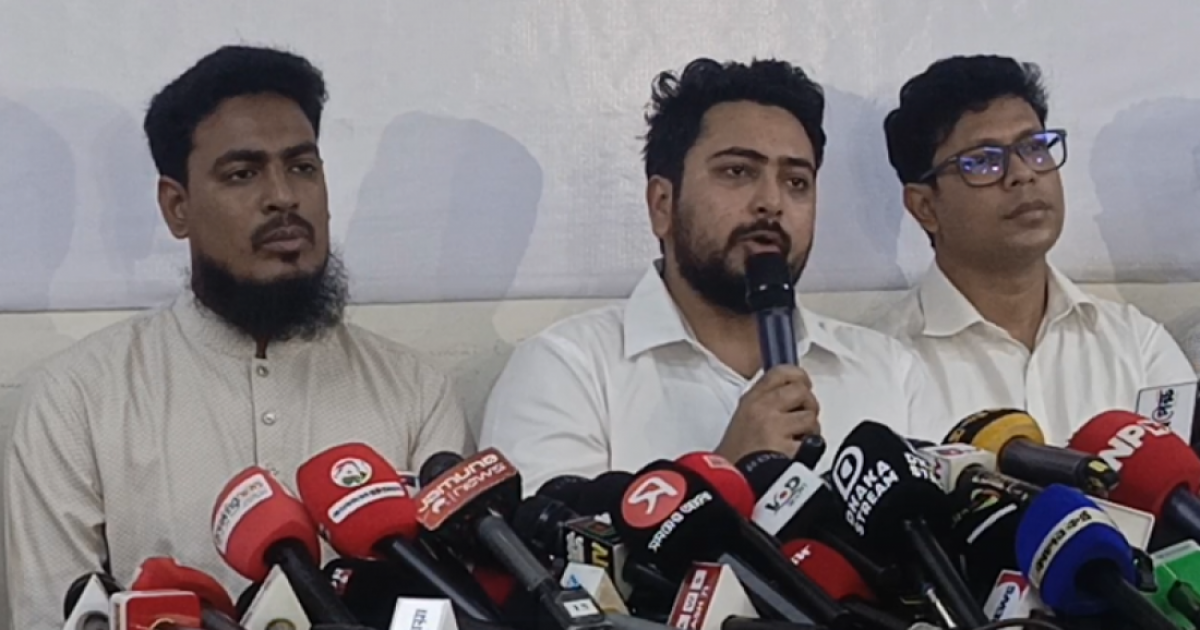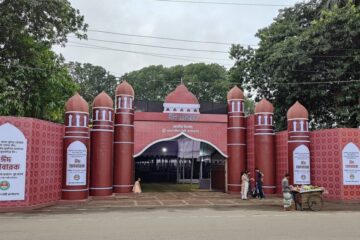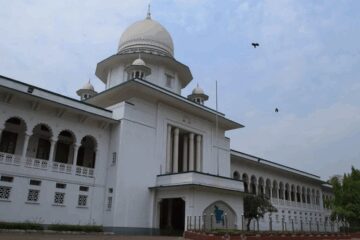National Citizens Party (NCP) Convener Nahid Islam on Saturday criticized the July Charter signing ceremony, saying it failed to reflect the spirit of the mass uprising and excluded key voices from the people’s movement.
Speaking at a press conference at the party’s Bangla Motor office in Dhaka, Nahid said: “Those who attended yesterday’s signing ceremony have distanced themselves from the spirit of the mass uprising and from the people. We call upon them to return to the people.”
He described the signing of the July Charter as “merely a formality,” warning that without legal validation, it risks becoming “an act of deception and a mockery of the people.”
Recalling the aftermath of the 1990 mass uprising, Nahid said promised political consensus was never upheld, and cautioned against repeating that history.
“Our struggle against fascism is not about trust or distrust between political allies — it is about ensuring that a constitutional change of such importance has a solid legal foundation,” he said.
He alleged that both domestic and foreign actors are working to prevent amendments to the 1972 Constitution in order to preserve the existing authoritarian structure.
“There are vested beneficiaries of that fascist system in many places, and certain political parties have compromised to maintain it,” he said.
“But pressure from students and the people has pushed forward discussions on reform, the formation of a commission, and the July Charter.”
Nahid emphasized that the July uprising was not directed solely at Sheikh Hasina or the Awami League, but at an entrenched system of authoritarianism.
“Changing political leadership alone will not solve Bangladesh’s democratic crisis. We must pursue deep structural reforms,” he said.
He also criticized the July Charter ceremony for failing to honor the sacrifices of protesters and martyrs.
“The July fighters and the families of martyrs were disrespected. The event did not reflect the aspirations of the people,” he said.
Nahid argued that only Dr Muhammad Yunus, as head of the interim government, holds the moral authority to issue a constitutional order legitimizing the charter.
“The current president cannot represent the spirit of the uprising. Any constitutional order issued by him would lack political legitimacy,” he said.
“Only Dr Yunus, entrusted by the people, can issue such an order — followed by a referendum, an elected parliament, and a constituent assembly to draft a new constitution.”
Addressing internal political dynamics, Nahid said the NCP is not concerned with who appeared in photos or attended the ceremony.
“After the mass uprising, we entrusted responsibility to Professor Yunus and urged anti-fascist forces to fulfill their duty. They declined, which compelled us to enter the government and later form a political party.”
He added that while many parties attended the signing at the government’s invitation, several had supported the NCP’s reform proposals during consensus commission discussions.
“Even after signing, some continue to call for legal validation — which shows our unity remains intact.”
Nahid concluded by reaffirming the NCP’s commitment to structural reform.
“We will support any party or government that works toward building a new democratic Bangladesh. But if none do, we will continue this struggle alone.”



